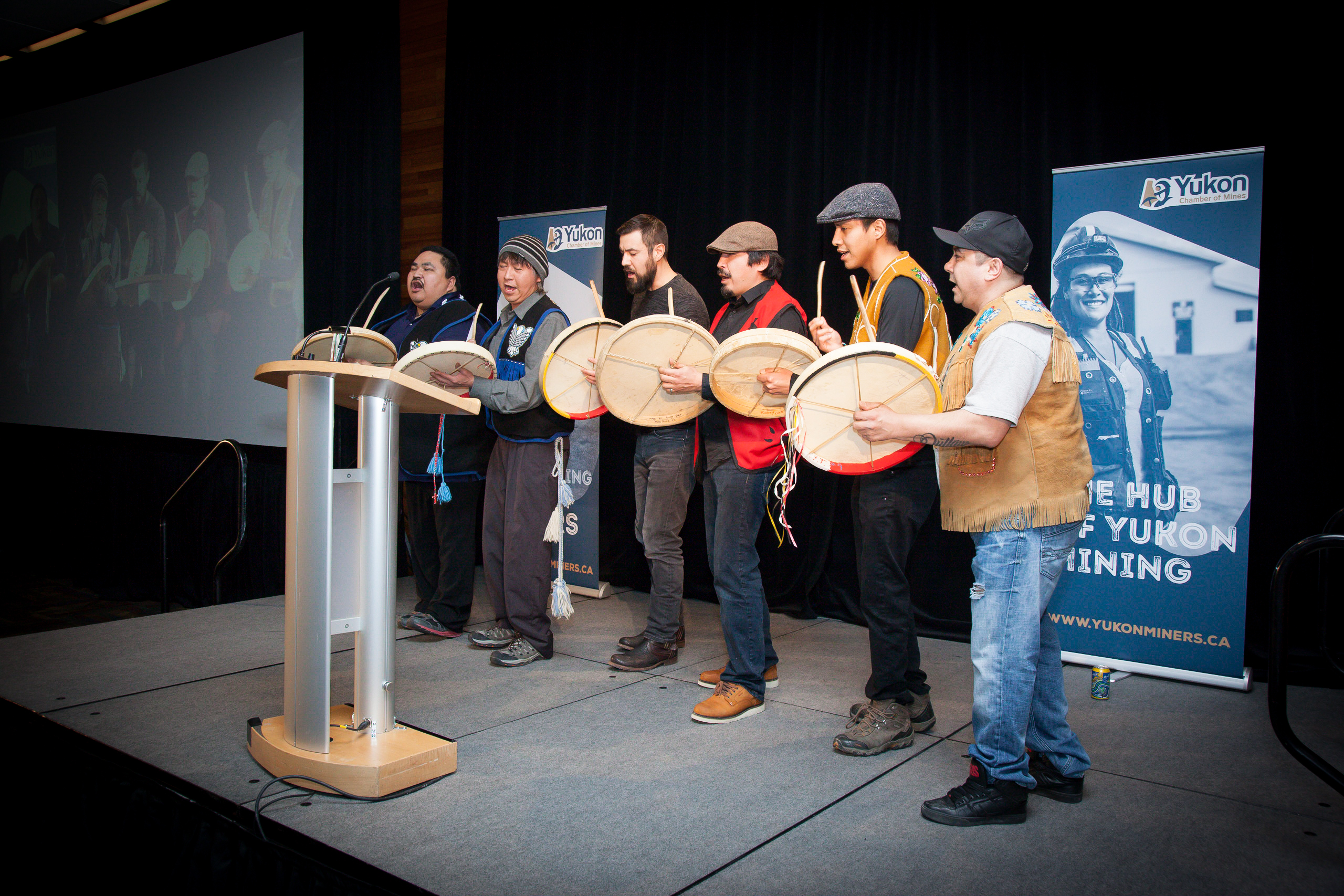First Nations see themselves as the protectors and stewards of land and resources for both current and future generations. Exploration and mining activities throughout Yukon during the 20th century affected the traditional way of life of Yukon First Nations. This contributed to First Nations’ negotiation of the Modern treaties, beginning with the Inuvialuit in 1984 and their interests along the North Slope of Yukon, followed by the Gwich’in Tribal Council's (GTC) interests in north-central Yukon in 1992. In 1993, the Council for Yukon Indians (today named the Council of Yukon First Nations) signed the Umbrella Final Agreement (UFA). The UFA created a foundation for the successful negotiation of eleven First Nation Final Agreements. Each Yukon First Nation Final Agreement is composed of the UFA with special clauses that customize the Agreement to each First Nation.
The UFA and Final Agreements affirmed Settlement Land and created or affirmed assessment and regulatory bodies with First Nation, Federal and Yukon government representation that apply throughout Yukon. Three Yukon First Nations did not reach settlement agreements. The regulatory and assessment processes created by the UFA, however, apply to lands in the non-treaty traditional areas of those three First Nations.
First Nations play an active part in land and natural resources stewardship, as well as economic development activities in Yukon. The eleven Modern treaty Yukon First Nations have traded off Aboriginal Title over larger areas of land in their Traditional Territories for the right to be partners in such matters as environmental assessment (UFA Chapter 12), water management (UFA Chapter 14), Heritage (UFA Chapter 13) and Land Use Planning (UFA Chapter 11), to name a few.
The bodies created or affirmed through these chapters of the Modern treaties apply to the Settlement Lands owned by Yukon First Nations, as well as all other Yukon lands and resources, including federal, territorial, and municipal lands.On their own lands, and in some cases over their people wherever they are in Yukon, the eleven First Nations with Modern treaties also have law-making powers. On Settlement Land some First Nations laws may apply to exploration. Seeking legal advice in this regard is strongly recommended.
First Nations who opted out of the UFA-based treaty negotiations include White River First Nation and the two Kaska First Nations, Liard First Nation and Ross River Dena Council. These three First Nations with non-treaty traditional areas have unique rights and interests that need to be recognized to enable the advancement of exploration projects.
The Taku River Tlingit First Nation (TRTFN) has interests in their non-treaty traditional area, land that overlaps with Teslin Tlingit Council and Carcross/Tagish First Nation. TRTFN has cultural, trading, and family ties to the citizens of these two First Nations and their Traditional Territory. Located in northern British Columbia First Nation, the TRTFN's rights and interests in the Yukon have yet to be reconciled.
In addition to the TRTFN, other Indigenous organizations have significant land interests in Yukon. The Inuvialuit's Modern treaty includes an environmental assessment process that applies to the North Slope of Yukon, while the GTC's Modern treaty includes 1554 kms2 of fee simple lands in the Peel region of Yukon.

